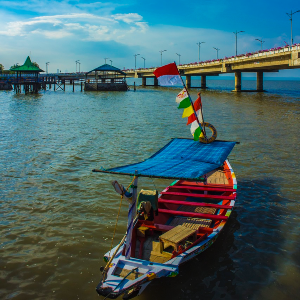 Smart Citations
Smart CitationsSee how this article has been cited at scite.ai
scite shows how a scientific paper has been cited by providing the context of the citation, a classification describing whether it supports, mentions, or contrasts the cited claim, and a label indicating in which section the citation was made.
Factors affecting individual beliefs associated with the quality of life of traditional divers in the coastal area
Traditional divers in Surabaya’s coastal area face challenges despite the abundance of marine resources. This study aims to explore the factors that related to the quality of life among these divers. The research followed an observational analytic approach with a cross-sectional design. The study involved 31 traditional divers from Kedung Cowek Village in Surabaya, randomly selected based on specific criteria. The research utilised the Health Belief Model theory to assess individual beliefs and the WHOQOL-BREF tool to measure their quality of life. The individual beliefs were categorised into five indicators: perceived vulnerability, perceived severity, perceived obstacles, perceived benefits, and self-efficacy. Out of these factors, two had a significant influence on the quality of life of traditional divers: perceived benefits (p = 0.009) and self-efficacy (p = 0.020). The study concludes that the quality of life for traditional divers in the Surabaya coastal area is primarily influenced by perceived benefits and self-efficacy. It suggests that nearby healthcare facilities could offer health education to traditional divers, focusing on specific protective measures to reduce the risks associated with diving, such as barotrauma and decompression sickness.
How to Cite

This work is licensed under a Creative Commons Attribution-NonCommercial 4.0 International License.

 https://doi.org/10.4081/hls.2023.11795
https://doi.org/10.4081/hls.2023.11795





